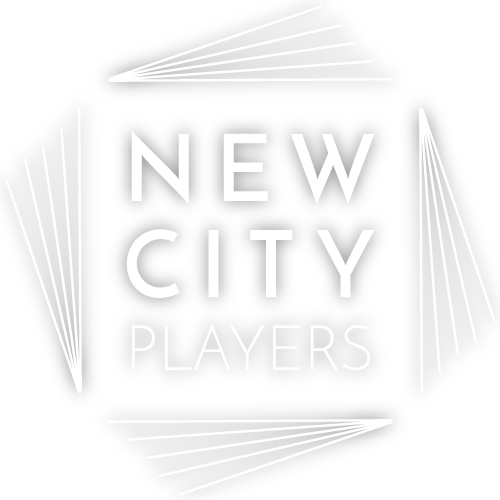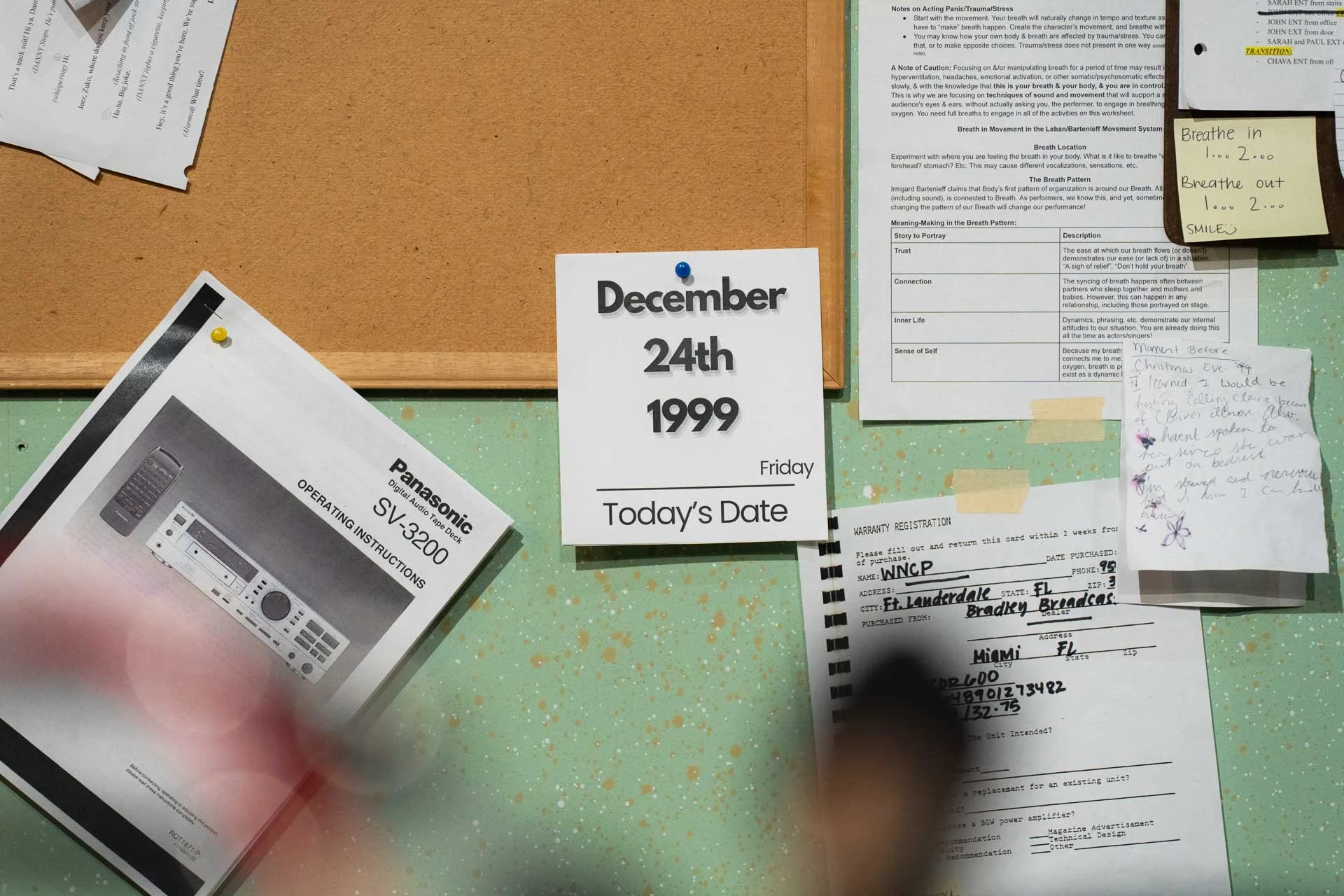A Note from the Dramaturg of The Last Christmas by Ali Tallman
Dramaturg Ali Tallman (right) consulting with actors during rehearsal of New City Players’ production of The Last Christmas.
On December 24, 1999, America sat on a precipice, looking into the bright face of a new millennium (or the end of one, depending on who you asked). In the 90s, we’d seen the end of the Cold War. The tech boom created low unemployment and economic prosperity as the dot-com bubble drove a booming stock market. The nation was grappling with the aftermath of President Bill Clinton’s impeachment, which had polarized opinions and sparked debates about morality in governance. Despite this, there was a strong sense of pride in national achievements. Cultural trends reflected a blend of nostalgia and innovation, as the rise of the internet transformed communication and media consumption. We were entering a new technological golden age. The approach to 2000 was arguably one of the last times Americans felt widespread, pure optimism about the future. The looming Y2K Bug was the first indication that the decade (and millennium) to come might not all be perfect.
If you aren’t familiar, the Y2K Bug was a tech issue and social panic sparked by early computer programmers having used the last two digits for years, rather than all four, in order to save memory space. This meant that when we switched from “99” to “00”, computers wouldn’t be able to differentiate between 2000, 1900, 1800, and so on.
Y2K made the public suddenly aware that computer chips were in virtually everything around them: traffic lights, trains, planes, vending machines, etc. At this time, only 50% of the public had personal computers - they were common, but not yet in everyone’s pocket. And no one definitively knew how much of a problem it would actually be; anything you could imagine wasn’t totally out of the realm of possibility. Y2K confronted the public with an overwhelming number of known unknowns. And a conclusive countdown clock.
Set details from New City Players’ production of The Last Christmas.
Technological leaps fundamentally change society. That change can be good or bad and, like any change, brings with it both optimism and anxiety. We’re experiencing it again now with AI. While the technology is new, this pattern of change & social reaction is long-established. We experienced it with the telegraph, radios, cars, and TVs. Y2K took things up a notch, as the first time we experienced the cross-pollination of the internet, conspiracies, misinformation, rage-baiting, and capitalism; now a familiar intersection in every modern social panic. If we retain this history in our collective memory, we can take the changes to come with a grain of salt: knowing that things will change, some for the better, some for the worse, but that we will adapt and adjust, as we always have.
At the heart of this show are the ideas that “goodwill towards all” is a choice that everyone is capable of making and that nothing matters more than the love we share with each other. My hope is that we can face the changes to come together, empowered by our history and our adaptability, guided by these principles of cooperation and compassion at all times, not just Christmas.
THE LAST CHRISTMAS by Tyler Johnson Grimes
A World Premiere
Directed by Timothy Mark Davis
The Last Christmas invites you to once again tune-in to WNCP Radio. It's December 24, 1999, and Eve Hart finds herself alone at the mic for the first time, filling in for the legendary host of Calling Claire. As anonymous callers share memories of love, loss, and a little holiday magic, Eve and her close-knit crew of radio misfits discover that sometimes the heart of Christmas isn't wrapped in a bow—it’s found in unexpected moments and imperfect connections. Set against a backdrop of Y2K jitters and 90s nostalgia, this third and final entry in our WNCP trilogy reminds us that even in the face of uncertainty, a shared story can help us all find our way home.
WHEN
December 6-22, 2024
PRICE
$40 Ticket
$25 Student Ticket
Make sure to plan your visit after booking tickets!



